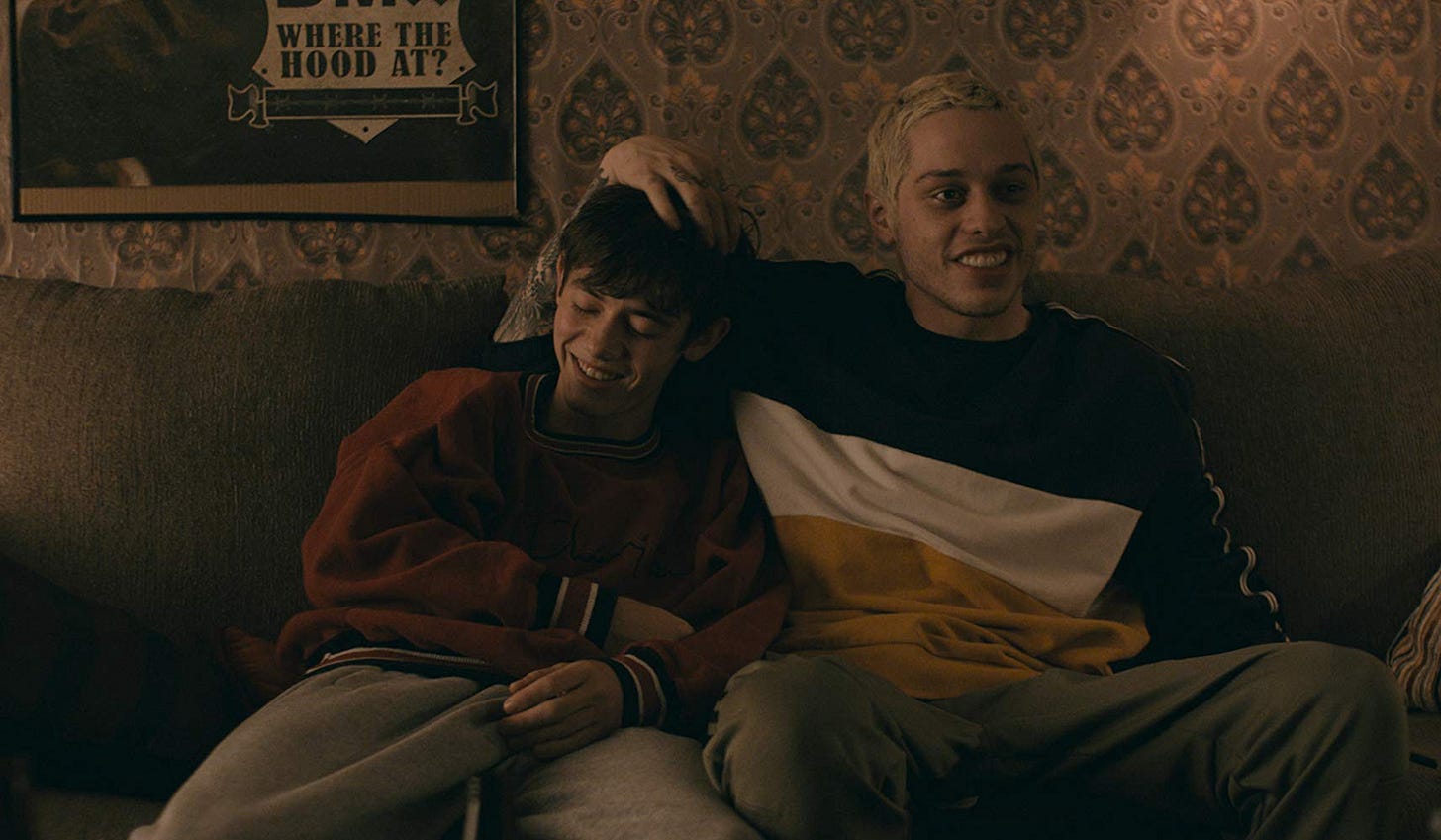Watching Hulu’s Big Time Adolescence the other night reminded me of a short period of my teenage life when I used to hang out with guys who consumed and sold drugs.
The movie is about a 16-year-old teenager Monroe (Griffin Gluck) who befriends his older sister’s college dropout ex-boyfriend Zeke (played by comedian Pete Davidson). Zeke is a 23-year-old man-child who smokes weed, plays videogames, and sells drugs. He was a legend in high school, and he still lives that lifestyle.
Jason Orley’s first feature is a bittersweet coming-of-age dramedy that depicts an unlikely friendship between a developing adolescent and an adult who failed to grow up.
Back in high school, I hung out with older dudes who used and sold drugs. They were easygoing, funny, and well-known in my little hometown. Their personality was charming to us kids. There is a certain aura around people like them. They made me seem cool, even though I didn’t do drugs and had never been forced or encouraged to act against it. They respected and accepted my decision.
You see, not all drug dealers are bad guys. Some of them are the most fun chaps on earth, but they all have emotional baggage; traumatic childhood memories, abusive relationships, and negligent dads who abandoned them. They were left behind and became the only men in the house to support the family. To many of them, selling drugs was a necessity because it’s easy money. However, that’s not an easy life, no matter how casual it seems sometimes. Being a full-time drug dealer is a flexible but stressful “profession.”
One of them was watched by the police. I remember seeing a civil cop car that always parked on the other side of the street in front of his apartment, although he was a small-time criminal.
For a teenager, drinking and taking drugs is dope. Some do it to numb their pain, escape an abusive home, or forget some depressive stuff that happened to them. But most do it to simply have fun and seem cool. Reputation is all that we care about at that age. My parents had a divorce when I was twelve, but I never thought about touching drugs for that reason. It never occurred to me as a possible solution to my problems. I drank with my buddies to party and celebrate, but never as a coping mechanism.
I hung out with those fellows because they were older, and I liked being around them. We spent time in bars playing table football and darts, smoke cigarettes, drink beers, and joke about girls and school. I felt that I belong because they cared about me. Being part of a group is a feeling you long for when you’re alone.
I watched them getting high, making deals in dark stairways and shady corners. It was part of the lifestyle, and I looked the other way. I think of those times as a crucial experience that made me appreciate my close friends and family more.
I was trying not to get involved with their business, but I borrowed them money a few times. I was worried, but luckily they always paid what they owed.
In the end, we went separate ways, and most of them don’t even remember me. I saw one of them a few years ago at my grandfather’s funeral. He worked for the cemetery at the time. He was a gravedigger who shoveled frozen ground onto my grandpa’s coffin. At the service, I stared at him for a minute, but he didn’t seem to recognize me — or he chose not to.
He could’ve been a successful basketball player because he had the talent, but we all know how these stories go. He got a bit fat, became a builder, and had kids. He got out of the game, though.
Writer-director Jason Orley does an excellent job portraying a close relationship between Monroe and Zeke. We understand why they need each other. Monroe looks up to Zeke like an older brother he never had, and Zeke needs him because he’s one of the few people who don’t think he’s just a 23-year-old disappointment. Their friendship is mutual, but eventually, only one of them is capable of changing.
We follow Monroe’s path as he learns what kind of life he’s going towards. He starts selling drugs at parties, as a favor to Zeke, and enjoys the attention he gets from guys and that one girl he fancies. He’s aware that it won’t last and slowly begins to realize that if he continues living this lifestyle, he will end up like Zeke, and that terrifies him.
That’s a trait I could relate to. Zeke is not violent, threatening, or manipulative. He’s just a big child who stopped growing. Monroe is smart enough to see that Zeke’s life is going nowhere, and he doesn’t want to be a company on that journey.
Their friendship comes to an end just like mine did with the dealers I knew. It’s a natural and inevitable process we go through as kids to be able to see the dead-end future that kind of life holds. It’s a significant experience that teaches us mentally and emotionally to avoid becoming a potential failure like them.
Big Time Adolescence is one of the best dramedies of the year. Don’t miss it.





